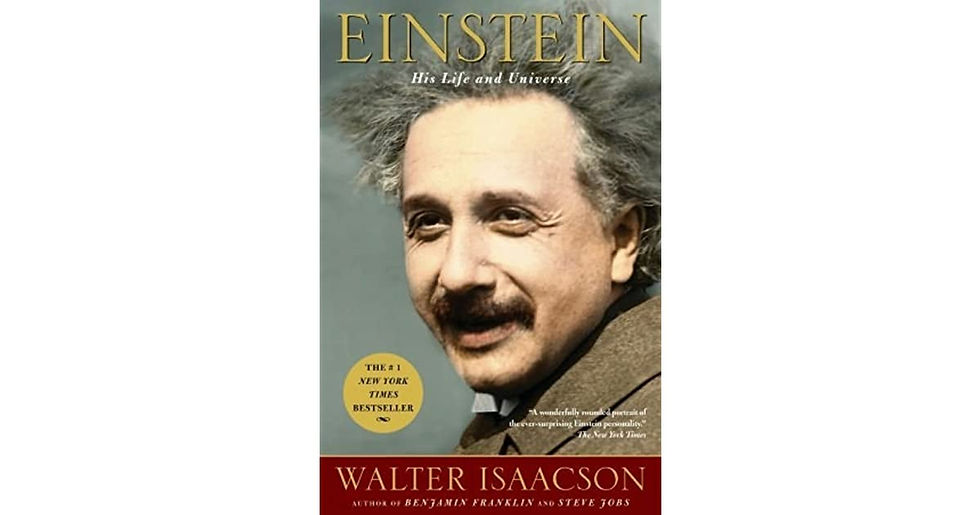
“There are only two ways to live your life. One is as though nothing is a miracle. The other is as though everything is a miracle.” ~ Albert Einstein
Science has been evolved many folds since the beginning of time. It has changed the entire way in which we live our lives today. Many great scientists and people in the field devoted their lives to inventing. These innovations have created a life that our future generations are living today. However, here is a good thing about science, it never stops evolving. Science will keep on developing as people in science will make discoveries. One such person is well known to everyone because of his scientific discoveries in Albert Einstein.
Einstein was a theoretical physicist and contributed his entire life to science. His theory of relativity and the equation E = mc² is known to be the pillar of modern physics.
Albert Einstein is a role model, inspiration and guide for thousands of young scientists around the world. Therefore, capturing his life within words is not easy. But author Walter Isaacson has tried doing that in his book Einstein: His Life and Universe.
Walter has attempted to put forth the major contribution of Einstein along with his personality and external factors that affected it in his book.
You will find this book an interesting read because:
1. The book tells the readers that Einstein never let his childhood curiosity die. This was one of the reasons, why he achieved so much in his life. Walter in his book begins with the early stages of life of Einstein and how it drew him towards science. Like, when his dad gave him a compass that intrigued his interest in science. Further, violin lessons arranged by his mother helped him keep composed and calm. Music was his comfort zone while solving complex physics problems. One of the people who introduced Einstein to some important people of science was Max Talmey. He introduced Einstein to Immanuel Kant and Aaron Bernstein. External factors like him being Jewish also forced him to keep his work at the topmost priority. The author in his book mentions that Einstein was rebellious and did not know how to bow down to authorities.
2. We all know the equation E = mc² which is part of his special relativity theory. Even though Einstein discovered that time is relative he did not receive a Nobel Prize for that. Einstein relied on the theories of Phillip Lenard and Max Planck for his theory. He received a Nobel Prize for the photoelectric effect in the year 1921. This was when he was in Switzerland after he divorced his first wife. He discovered that light does not only travel in waves but form of particles as well. This theory was discovered in 1905 and, this was proved ten years later after which he received a Nobel Prize. The author also talks not only about scientific breakthroughs but personal life of the physicist. Einstein married his first cousin with whom he had an affair for seven years. Later, he spent most of his life in the United States at Princeton’s Institute for Advanced Study.
3. Einstein's work on subatomic particles led to the invention of an atom bomb. He was worried and concerned as this invention could be used to destroy the world. During his later life, he did not stop researching and working for science. However, in 1955 he was hospitalized because of an aneurysm in his stomach. He declined to get surgery and decided to spend his calculated time on earth in the lap of science. In his last days, he wrote around twelve pages of equations and a personal note. Einstein gave his entire life for science and changed the entire meaning of the universe as we understand it now. The author did a good job in describing all the aspects of Albert Einstein's life in his book.
Conclusion
If you are a science enthusiast or someone who is already working in the field of science, this biography is for you. It will help you find a role model in Albert Einstein and how he changed our understanding of the Universe. Walter Isaacson is a commendable writer who has written a beautiful biography on Steve Jobs. In his book Einstein: His Life and Universe, he has kept things interesting to keep the reader's attention. The biography is full of his breakthroughs right from his childhood to his last days. The book not only focuses on the good aspects of Einstein's character but show him as a human being. This means he is bound to have some flaws. One of the flaws that Einstein had was he loved his work and personal freedom so much that he did not like being caged. However, he has achieved so much in his life and inspired so many people to work for science.

Comments